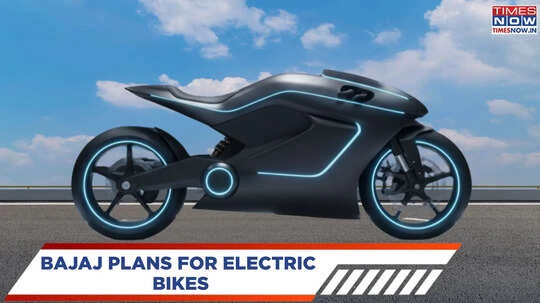India’s electric two-wheeler market is growing at a fast pace and Bajaj Auto is gearing up for the next big shift. While Bajaj is actively developing electric motorcycles, the company mentions it is still too early to predict how strong the demand will actually be.
Bajaj is building this technology now so it won’t miss out later in the evolving electric vehicle market, even though no one is fully sure how many people will be interested in owning electric bikes.
Bajaj revealed that the electric two-wheeler market in India is currently running at around one lakh units per month and their own EV scooter which is the Bajaj Chetak, continues to perform well despite a brief slowdown earlier this year. This temporary decline was caused by a shortage of rare earth magnets which is a key part used in electric motors. Bajaj quickly shifted to new suppliers and production was back to normal by September end.
Chetak became top selling electric scooter in India’s Vahan registrations in October 2025. The brand has also expanded rapidly and now is operating through 390 exclusive outlets and 4,000+ touchpoints across 800 cities, which is a massive advantage in reaching customers nationwide.
But the big shot is that Bajaj has confirmed it is actively working on electric motorcycles. Although the company didn’t reveal a launch date, it admitted that demand trends are still unclear. Some people, especially in global markets, are showing interest in EV bikes, but the numbers are not predictable yet.
Even so, Bajaj believes the bigger risk would be not preparing for the future. So the research and development (R&D) teams are busy developing bikes that will be ready whenever the market trend increases.
Electric Chetak, electric three-wheelers and Yulu bikes contributed 20% of Bajaj’s domestic revenue in Q2. Even better, the EV business delivered double-digit EBITDA, which shows that electric models are becoming profitable due to better production efficiency and rising sales.
Bajaj also highlighted running costs because electric vehicles are far cheaper to operate as EVs cost around 30 paise per km and petrol scooters cost around Rs 3 per km., which is a huge saving for daily commuters.
The company believes this cost advantage will drive more people toward EVs, even though interest slowed temporarily during the festive period due to GST benefits on petrol bikes.
Bajaj’s future plans are a testament of its futuristic approach, as the brand is all set for a new Chetak model coming early next year, electric motorcycle development is in full swing and over time, Bajaj plans to expand from electric scooters into a full lineup that includes EV bikes.
For beginners entering the auto world, Bajaj’s strategy is simple: prepare, innovate, and be ready. Even if demand is uncertain today, the future of electric motorcycles looks exciting-and Bajaj wants to be at the front of that revolution.
